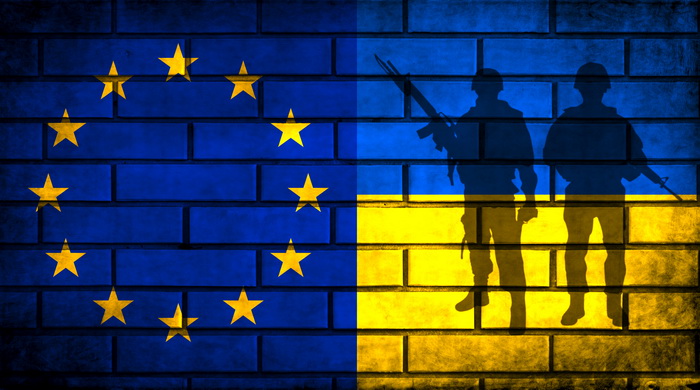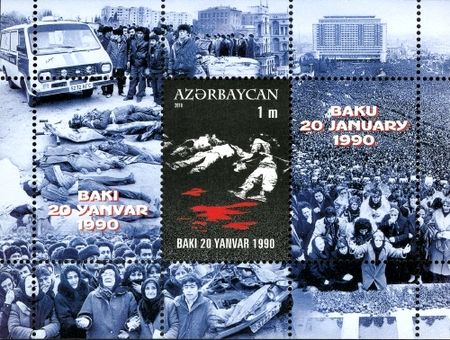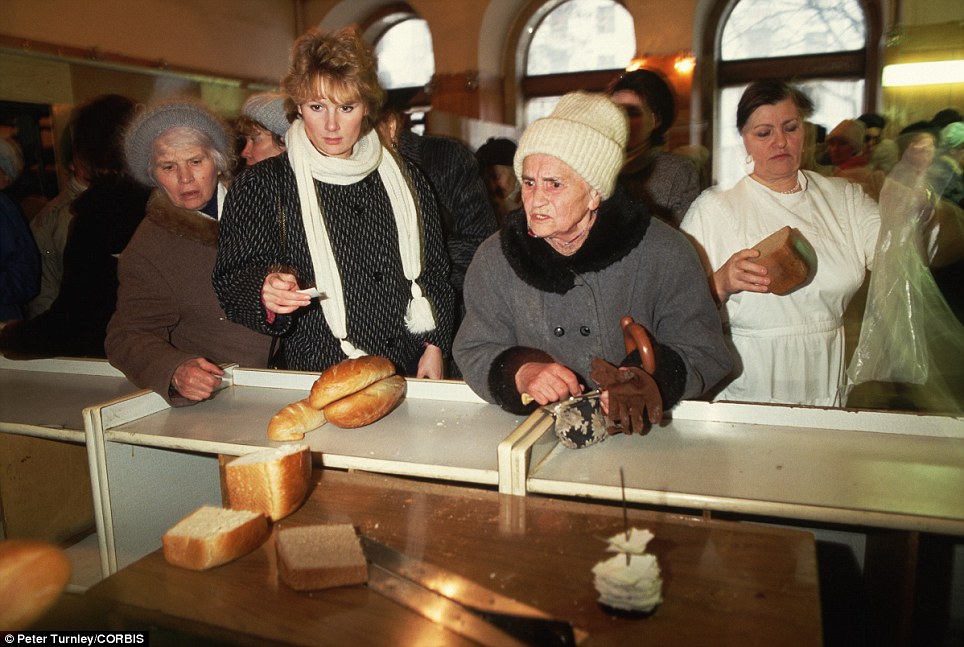On 18 April, Ukraine completed the questionnaire on accession to the European Union. Next, the European Commission will prepare a recommendation on Ukraine's fulfillment of the Copenhagen criteria for joining the EU. Ukraine aspires to receive the status of a candidate country for EU accession in June 2022. Zarina Zabrisky talks to a prominent Ukrainian art critic Kostyantyn Doroshenko and award-winning Ukrainian novelist Oleksiy Nikitin about Ukraine’s history, identity, and desire to join the EU.
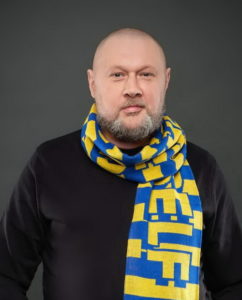 Kostyantyn Doroshenko, an art critic, author, a podcast host, and, according to "Art Ukraine" magazine, one of the top five most influential Ukrainian curators, spoke from Chernivtsi, Ukraine.
Kostyantyn Doroshenko, an art critic, author, a podcast host, and, according to "Art Ukraine" magazine, one of the top five most influential Ukrainian curators, spoke from Chernivtsi, Ukraine.Ukraine identifies itself as part of Europe
- The East Slavic people—Ukrainians, Belarusians, and Russians—once shared Kyivan Rus, a powerful metropolis that flourished from the 9th century until its conquest by the Tatar Mongols in the 13th century. The territories constituting the state of Ukraine at different times belonged to a wide range of empires: the Golden Horde, the Grand Duchy of Lithuania, the Kingdom of Poland, the Crimean Khanate, Habsburg Austria, and the Russian Empire. How did this tumultuous history influence today’s political landscape? - Tsarist Russia created a myth of the descent of the Holstein-Gottorp-Romanov Empire from Kyivan Rus. Soviet ideology adopted that tsarist version of history. The doctrine “Three peoples — Three brothers” labeled Russian, Belarusian, and Ukrainian peoples as “brotherly” and recognized the supremacy of the Russian people. The Belarusian and Ukrainian peoples were considered “Russians with local deviations.” - Ukrainian and Belarusian priests who were educated in the Lithuanian-Polish kingdom influenced Russian culture. It was them who exported Western and Latin traditions to Moscow at the end of the 17th century. Russia existed in complete isolation from Europe and experienced no Renaissance. How would you describe the main differences between Russian and Ukrainian cultures? - Ukrainian and Russian histories differ dramatically. The Moscow state tradition was formed by its proximity to the Golden Horde, while the Ukrainian state tradition was influenced by the Galician Principality, the Grand Duchy of Lithuania, and the Commonwealth. By the time Bohdan Khmelnytsky unified Ukrainian lands with Russia, Ukraine had already been a part of European civilization, intellectually and socially. This event was the starting point of the Europeanization of Russia. The West-oriented policy of Peter the Great was influenced by Hetman of Ukraine Ivan Mazepa to a great degree. Ukrainian folk tradition and culture have remained different from the Russian for centuries. In the 19th century, the blossoming of Ukrainian-language literature and the humanities was inspired by the European Spring of the Peoples.Is Ukraine European? Historian Yaroslav Hrytsak answers- How does joining the EU fit into the concept of Ukrainian independence? - The desire to join the family of European nations does not contradict the aspiration for Ukrainian independence. The very idea of independence is rooted in Ukraine’s orientation towards Europe. Ukraine sees its future in separation from Russia as the Russian mentality with its communal values contradicts the individualism inherent in Ukrainian culture. Since the beginning of the 20th century, Ukraine’s motto was “Away from Moscow!” - In 1922, after a couple of years of independence, Ukraine became a republic of the Soviet Union. Ukrainian remained the official language till the 1930s when Russian was enforced. Ukraine finally gained its independence after the collapse of the USSR in 1991. - Ukraine was one of the main republics in the USSR, and one of the most affected by WWII. The country became a co-founder of the United Nations while remaining under the full control of Moscow. After the collapse of the USSR, Ukraine demonstrated a peaceful and lawful transfer of power from the first president to the second, showing adherence to the principles of democracy. Since then, Ukrainian society has consistently resisted attempts of authoritarian usurpation.
We are looking at a real confrontation of civilizational values today. Russia is a prison of nations, as it was called in tsarist times, and Ukrainians understand that well.
Ukraine's attraction to Europe is a return to the interrupted relationship with Europe
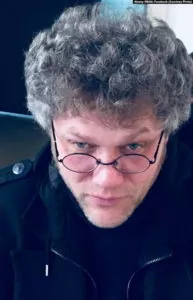 Oleksiy Nikitin, a novelist, a member of the Ukrainian center of the International PEN Club, spoke to me from Kyiv. His books have been translated and published in Ukraine, Russia, the UK, Italy, Switzerland, and the United States. Nikitin received the Korolenko prize of the National Writers Union of Ukraine, for the best Ukrainian prose written in Russian and the 2014 Russian Prize, which honors extraordinary prose works written in Russian by authors not living in Russia.
Oleksiy Nikitin, a novelist, a member of the Ukrainian center of the International PEN Club, spoke to me from Kyiv. His books have been translated and published in Ukraine, Russia, the UK, Italy, Switzerland, and the United States. Nikitin received the Korolenko prize of the National Writers Union of Ukraine, for the best Ukrainian prose written in Russian and the 2014 Russian Prize, which honors extraordinary prose works written in Russian by authors not living in Russia.Timothy Snyder: If Ukrainians hadn’t fought back, the world would’ve been a much darker place- How does the Ukrainian intent to join the EU reconcile with the pursuit of independence? - Modern Ukraine gravitates toward Europe. It has been Europe for most of its history, part of the European political, military and cultural space. Look at the network of European medieval universities: the easternmost of them, the Kyiv-Mohyla Academy, was in Ukraine. Students from Kyiv studied at the Sorbonne even in the times of the Mongol empire. Later, the people of Kyiv became compatriots of Nicolaus Copernicus. In the 20th century, many Ukrainians who fled the Bolshevik rule were the pride of European culture and science. Therefore, for Ukrainians, the attraction to Europe is a return to those values, a return to the interrupted relationship with Europe. Ukrainians were deprived of this cultural tradition in the Russian Empire and the Soviet Union. At the same time, the political structure of the EU allows the country to remain independent. - Is it fair to say that the current unspeakable horror is the consequence of the Russian imperial history and colonial ambitions? In the early 1500s, monk Philotheus wrote to Vasily III of Russia that the fall of Constantinople makes Moscow the Third Rome. The myth of a “big brother” with its “vassal” countries is a major force driving Putin’s 2022 war against Ukraine. Russian crusaders are on the mission to fight “nationalists.” What is his “nationalism” idée fixe? - It is difficult for me to understand what Putin and his entourage mean by “nationalism.” For them, this has long been just a propaganda cliché. There are far more far-right groups in Russia than in Ukraine. They are more numerous and get support from the state. It’s nobody's secret and nobody tries to hide it.
But it seems to me that for the Kremlin, nationalists are all Ukrainians who do not want to accept Russia’s imperial dictatorship, all those who do not want to obey, and who value their personal freedom and the freedom of the country.
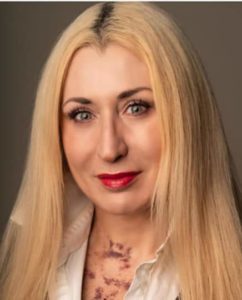 Zarina Zabrisky is an award-winning American author of five books published internationally, including the novel "We, Monsters" and three short story collections, and journalist. She is a regular contributor to Byline Times, and contributed to Indivisible Movement, Crossing Genres, Digital Left, and elsewhere.
Zarina Zabrisky is an award-winning American author of five books published internationally, including the novel "We, Monsters" and three short story collections, and journalist. She is a regular contributor to Byline Times, and contributed to Indivisible Movement, Crossing Genres, Digital Left, and elsewhere.
